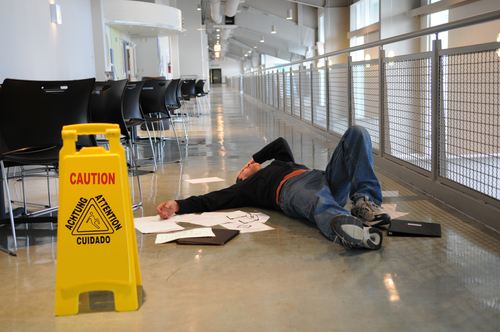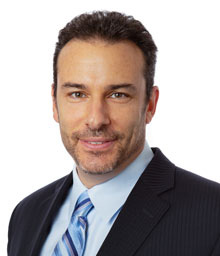- Home
- Our Firm
- Practice Areas
- Bicycle Accidents
- Car Accidents
- Construction Accidents
- Amputations & Limb Loss
- Burns and Construction Accidents
- Construction Wrongful Death
- Crane and Vehicular Accidents
- Construction Negligence
- Construction Slip and Fall Accidents
- Construction Accident Legal Guide
- Construction Site Safety Code
- Cranes & Derricks Safety Standards
- Excavation Safety Standards
- Fall Protection Standards
- General Construction Safety and Health Standards
- High-Risk Construction Oversight
- New York Labor Laws
- New Protocols for Existing and New Concrete-Embedded Fall Arresting Systems
- Personal Protective and Life Saving Equipment Standards
- Scaffold & Sidewalk Shed Safety
- Scaffold Safety Standards
- Steel Construction Safety Standards
- Construction Zone Accidents
- Dangerous Construction Trades & Professions
- Electrocution Accidents
- Eye Injury
- Failure to Provide Safety Equipment
- Falling Objects Injuries
- Falls from Elevated Work Surfaces
- Fracture Injury
- Forklift Accidents
- Knee & Ankle Injuries
- Knee & Shoulder Injury
- Heavy Equipment Accidents
- Spinal Cord Injury
- Scaffolding Accidents
- Paralysis Injury
- PTSD and Construction Accidents
- Toxic Exposure Injury
- Trench Collapse Accidents
- Traumatic Brain Injury
- Undocumented Construction Worker Injuries
- Workplace Construction FAQ’s
- Dog Bite
- Lead Poisoning
- Motorcycle Accidents
- Pedestrian Accidents
- Personal Injury
- Premises Liability
- Rideshare Accident
- Slip and Fall
- Airport Falls
- Cluttered Aisle Falls
- Workplace Falls
- Common Injuries
- Elevator and Escalator Falls
- Grocery Store Falls
- Aldi Grocery Store Slip And Fall
- Associated Supermarkets
- Big Deal Supermarket
- CTown Supermarkets
- Compare Foods Supermarket
- Good N’ Natural Organic Market
- Fairway Market
- Fine Fare Supermarkets
- Food Bazaar Supermarket
- Gristedes Supermarkets
- Key Food Stores
- Met Foodmarkets
- Pioneer Supermarkets
- Shop Fair Supermarket
- Shoprite Of Gateway Center
- Stop & Shop
- Superfresh Store
- Trader Joe’s
- Wegmans
- Western Beef Supermarket
- Whole Foods
- Ice Slip and Falls
- Inadequate Lighting Accidents
- Loose and Uneven Flooring
- NY Property Owner Responsibility
- Parking Lot & Sidewalk Falls
- Public Park Falls
- Public Transportation Falls
- Snowstorm Falls
- Stairway Falls
- Slip and Fall Legal Guide
- Slip And Fall Settlements
- Slip And Fall FAQs
- Slippery Floors Accidents
- Statute of Limitations
- While Pregnant
- While Visiting New York
- Why Are Slip and Fall Cases So Hard to Win?
- Truck Accidents
- Traumatic Brain Injury
- Wrongful Death
- See All Legal Services
- Cities We Serve
- Client Testimonials
- Contact Us
- Blog
- FREE CASE EVALUATION (212) 279-2000

One of the standard defenses in a slip-and-fall accident claim is that the property owner posted a warning about the hazard, and therefore a reasonable person would have heeded the warning and proceeded with caution or avoided the area and not been injured.
This is a general perception that leads some New Yorkers who have been seriously injured in slip, trip and fall accidents to think they have no claim when, in fact, the property owner should be held liable.
The presence of a warning sign — such as a yellow standing floor sign or safety cone that says “wet floor” — does not automatically protect the property owner from being sued after a slip-and-fall accident. Anyone seriously injured in a fall caused by a hazard present at the accident site should consult an experienced personal injury lawyer about legal recourse available to them.
Can You Sue If There Was A Warning Sign?
In any slip-and-fall claim, all of the facts matter — not just whether there was a warning sign. Property owners in New York, especially commercial property owners, have a legal obligation to ensure their premises (buildings and grounds) are reasonably safe for visitors. If a hazard develops, the property owner is obligated to correct it in a timely manner and to post adequate warnings of its existence if it cannot be repaired immediately.
In short, if a spill occurs in a grocery store, the owner (through management and staff) is required to promptly clean up the spill and to warn customers of the slippery floor until the spill is cleaned up. If the owner fails to meets these obligations, the property owner may be held liable for any injury that occurs due to the hazard and the owner’s negligence.
For the purposes of this discussion, let’s stipulate that a grocery store’s staff set out a “wet floor” warning sign as soon as they discovered the spill. However, a shopper who encountered the spill slipped, fell and broke her hip — one of the most serious fall injuries, especially among older adults.
The initial question becomes, was the warning sign adequate? On the face of it, the shopper who fell clearly was not alerted to avoid the spill. A New York personal injury attorney would need to show that the warning sign was too small or not located close enough to the spill and that a “reasonable person” would not have been sufficiently warned of the hazard.
Marked “Wet Floor” Sign But Still Fell? These Are Some Questions To Answer
In considering a slip-and-fall claim that involved a wet floor marked by a warning sign, the questions we would ask include:
- What kind of sign was posted?
- How close to the hazard was the sign posted?
- How was the warning sign posted?
- Was the warning on the sign in a language the fall victim understands?
- Was there sufficient lighting for the sign to be seen and read?
While having posted a warning sign is proper and helps the defense in a fall claim, many studies show that warning signs are not effective. In one study of “the most common warnings used to prevent slips, trips and falls”, 246 people who walked through a hallway where either a triangular floor sign, a rectangular floor sign or a tall safety cone had been placed were interviewed after they left the facility. Only 2 percent of participants said they noticed the floor sign. A lesser warning, such as a hand-written sign on the wall, would hardly be expected to prove better.
In another study, “most pedestrians simply ignored the signs. In some cases, they actually moved them from where they were originally placed.”
Failure To Display Wet Floor Sign
If a warning sign was not in close proximity to the hazard at the time of an accident, could not be seen well or was in a language that pedestrians could not understand, it would obviously be less effective than a reasonable person would expect.
- How long had the spill been on the floor?
- What were the store conditions when the accident occurred?
- Had store personnel had sufficient time to correct the spill?
The underlying requirement of premises liability law is for the property owner to maintain safe premises by eliminating hazards. An owner is given “reasonable time” to correct the unsafe condition, but must demonstrate a good faith effort toward that end. If the store’s staff did not make a reasonable effort to take care of a potential slip-and-fall danger beyond simply posting a warning, the owner may still be liable for an accident.
To determine whether you have a valid fall case would require our New York injury attorneys to investigate the circumstances surrounding the accident, including answering the questions above. Our team would seek to gather evidence by speaking with you and any witnesses to the accident, and by analyzing the accident scene, including any surveillance camera footage. If we found that the property owner, through his or her employees, was negligent, we could likely proceed with a claim.
Slip And Trip Warning Signs Are Not Enough To Prevent A Serious Injury
Slip-and-fall accidents are well recognized as a leading cause of injury in the workplace, as well as in homes. One in five adults who fall suffers a serious injury, such as broken bones or a head injury, the Centers for Disease Control and Prevention (CDC) says.
The Occupational Health and Safety Administration (OSHA) requires employers to provide a work environment that is free from recognized hazards that are capable of causing serious physical harm or death. Among OSHA’s requirements are rules for keeping floors clean and dry to prevent slipping and falling, and ensuring that walkways, aisles, passageways and exits remain free from obstruction to prevent tripping and falling.
New York business owners should be well aware of the potential for slip- or trip-and-fall injuries and their duty to respond to unsafe conditions in a timely manner. When property owners neglect their legal duties and someone is seriously injured, it is proper to hold responsible parties accountable and ensure the injured individuals and/or their family are properly compensated for their losses, including medical expenses and pain and suffering.
We Take New York Slip-And-Fall Claims Seriously
If you’ve been hurt in a slip-and-fall accident in New York, look to the law firm of David Resnick & Associates, P.C., for responsive, professional and compassionate representation. We’ll investigate your accident to collect evidence and testimony necessary to build a strong case on your behalf. Displaying a warning sign does not necessarily prevent a slip, trip and fall claim. Let us investigate and get answers or you.
Call (917) 722-1852 today or fill out our online form for a free review of your case.
What Our Clients Say
RECENT NYC SLIP & FALL LAWSUIT VERDICTS
$2 MILLION
Fractured Leg
$1.9 MILLION
Car Accident Settlement
$1.75 MILLION
Slip And Fall Settlement
LATEST BLOG POSTS
December 07, 2023
The Role of Surveillance Footage in Slip and Fall Claims
Slips and falls are a common source of injury in New York City, particularly when property owners are negligent in the…
October 11, 2023
Preventing NYC Halloween Personal Injuries This Season
For most children and many adults, Halloween is an exciting opportunity to dress up and go trick-or-treating or go out…
October 05, 2023
How Social Media Can Impact Your Case
Social media platforms are everywhere. You can check the status of friends and family on Facebook, flip through photos on…
Get In Touch
Get Your Free Consultation✖






